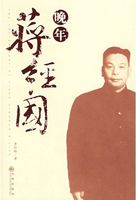They did not cultivate cleanliness. They purified themselves for the altar, and found that they were clean. The history of the Jews is the only early document known to most Englishmen, and the facts can be judged sufficiently from that. The Ten Commandments which have been found substantially common to mankind were merely military commands; a code of regimental orders, issued to protect a certain ark across a certain desert. Anarchy was evil because it endangered the sanctity.
And only when they made a holy day for God did they find they had made a holiday for men.
If it be granted that this primary devotion to a place or thing is a source of creative energy, we can pass on to a very peculiar fact.
Let us reiterate for an instant that the only right optimism is a sort of universal patriotism. What is the matter with the pessimist?
I think it can be stated by saying that he is the cosmic anti-patriot.
And what is the matter with the anti-patriot? I think it can be stated, without undue bitterness, by saying that he is the candid friend.
And what is the matter with the candid friend? There we strike the rock of real life and immutable human nature.
I venture to say that what is bad in the candid friend is simply that he is not candid. He is keeping something back--his own gloomy pleasure in saying unpleasant things. He has a secret desire to hurt, not merely to help. This is certainly, I think, what makes a certain sort of anti-patriot irritating to healthy citizens. I do not speak (of course) of the anti-patriotism which only irritates feverish stockbrokers and gushing actresses; that is only patriotism speaking plainly. A man who says that no patriot should attack the Boer War until it is over is not worth answering intelligently; he is saying that no good son should warn his mother off a cliff until she has fallen over it.
But there is an anti-patriot who honestly angers honest men, and the explanation of him is, I think, what I have suggested: he is the uncandid candid friend; the man who says, "I am sorry to say we are ruined," and is not sorry at all. And he may be said, without rhetoric, to be a traitor; for he is using that ugly knowledge which was allowed him to strengthen the army, to discourage people from joining it. Because he is allowed to be pessimistic as a military adviser he is being pessimistic as a recruiting sergeant.
Just in the same way the pessimist (who is the cosmic anti-patriot) uses the freedom that life allows to her counsellors to lure away the people from her flag. Granted that he states only facts, it is still essential to know what are his emotions, what is his motive.
It may be that twelve hundred men in Tottenham are down with smallpox; but we want to know whether this is stated by some great philosopher who wants to curse the gods, or only by some common clergyman who wants to help the men.
The evil of the pessimist is, then, not that he chastises gods and men, but that he does not love what he chastises--he has not this primary and supernatural loyalty to things. What is the evil of the man commonly called an optimist? Obviously, it is felt that the optimist, wishing to defend the honour of this world, will defend the indefensible. He is the jingo of the universe; he will say, "My cosmos, right or wrong." He will be less inclined to the reform of things; more inclined to a sort of front-bench official answer to all attacks, soothing every one with assurances.
He will not wash the world, but whitewash the world. All this (which is true of a type of optimist) leads us to the one really interesting point of psychology, which could not be explained without it.
We say there must be a primal loyalty to life: the only question is, shall it be a natural or a supernatural loyalty?
If you like to put it so, shall it be a reasonable or an unreasonable loyalty? Now, the extraordinary thing is that the bad optimism (the whitewashing, the weak defence of everything) comes in with the reasonable optimism. Rational optimism leads to stagnation: it is irrational optimism that leads to reform.
Let me explain by using once more the parallel of patriotism.
The man who is most likely to ruin the place he loves is exactly the man who loves it with a reason. The man who will improve the place is the man who loves it without a reason. If a man loves some feature of Pimlico (which seems unlikely), he may find himself defending that feature against Pimlico itself. But if he simply loves Pimlico itself, he may lay it waste and turn it into the New Jerusalem.
I do not deny that reform may be excessive; I only say that it is the mystic patriot who reforms. Mere jingo self-contentment is commonest among those who have some pedantic reason for their patriotism.
The worst jingoes do not love England, but a theory of England.
If we love England for being an empire, we may overrate the success with which we rule the Hindoos. But if we love it only for being a nation, we can face all events: for it would be a nation even if the Hindoos ruled us. Thus also only those will permit their patriotism to falsify history whose patriotism depends on history.
A man who loves England for being English will not mind how she arose.
But a man who loves England for being Anglo-Saxon may go against all facts for his fancy. He may end (like Carlyle and Freeman) by maintaining that the Norman Conquest was a Saxon Conquest.
He may end in utter unreason--because he has a reason. A man who loves France for being military will palliate the army of 1870.
But a man who loves France for being France will improve the army of 1870. This is exactly what the French have done, and France is a good instance of the working paradox. Nowhere else is patriotism more purely abstract and arbitrary; and nowhere else is reform more drastic and sweeping. The more transcendental is your patriotism, the more practical are your politics.















